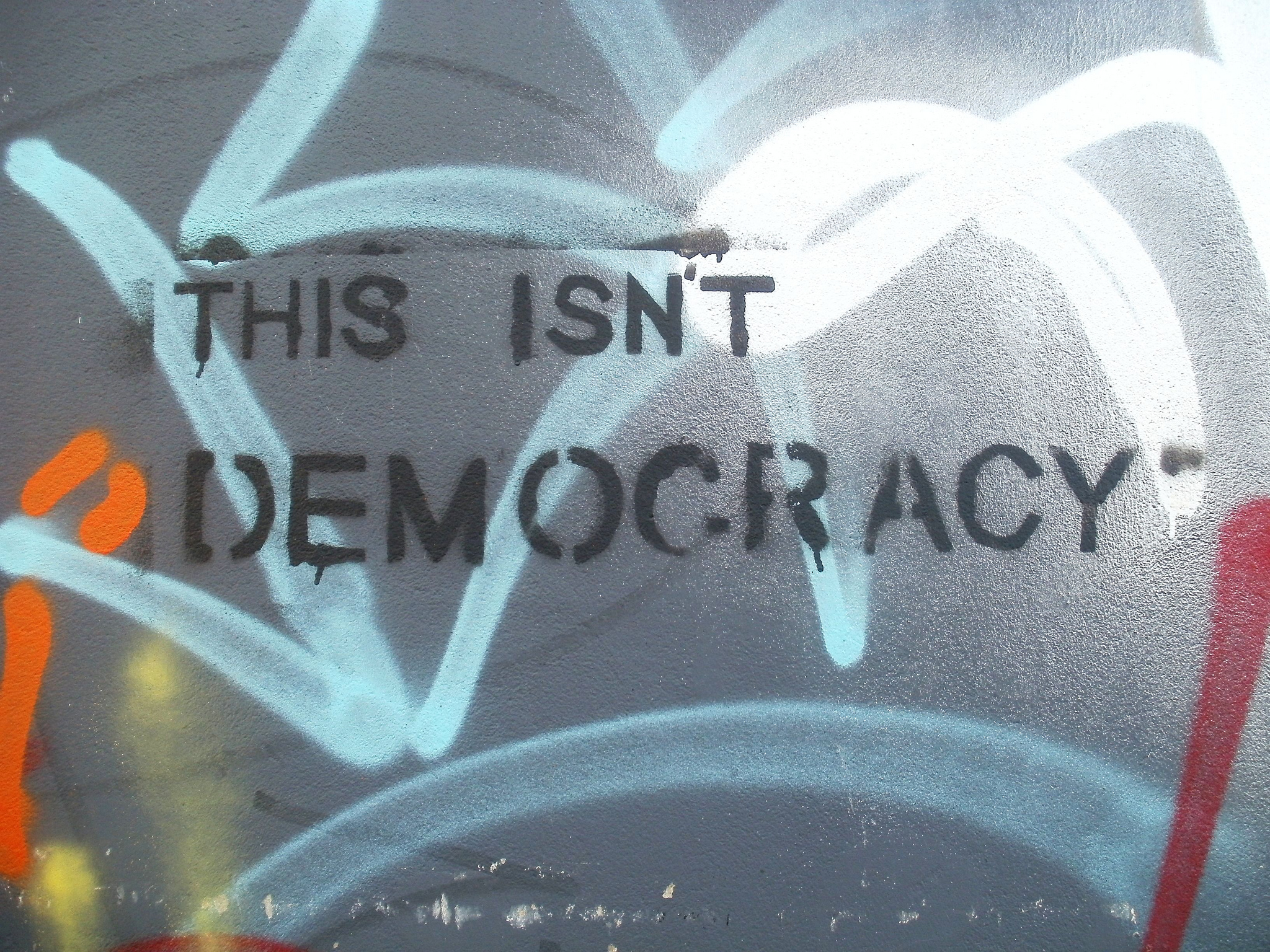
Image by Feral78 via Creative Commons
In the run up to the UK general election, we’ve been looking at all things democratic on our blog. A quick read of some of our key articles shows just how much interest there is currently in making policy-making and government more accessible and open. It’s not easy though –the majority of the social, economic and environmental problems facing the country could be described as ‘wicked’ – cutting across boundaries (geographic and service) and requiring significant change (behavioural or organisational).
On the positive side, there are creative digital and social approaches developing – aimed at increasing engagement and stimulating discussion. Sites like ShouldWe are taking a crowd-sourced approach to examining public policy debates and evidence. Democracy Club is also using crowdsourcing, this time to capture candidate information and create and archive of election leaflets. And this election has seen a huge increase in public scrutiny of manifestos, speeches and politician’s campaigning, with sites such as Fact Check , Full Fact and The Conversation’s Election FactCheck examining the evidence behind the rhetoric.
In terms of reaching those groups who have tended to be disengaged from politics, online campaigns such as #EmilyMatters , Operation Black Vote and Bite the Ballot have been using social media to counter the argument that politics is irrelevant to everyday life.
Without a commitment to open and ongoing discussion about the choices our governments (local and national) are making – and the implications of these for our society – large sections of the population will remain excluded from the democratic process.
When the Information Service we deliver was set up over forty years ago, one of its founding aims was to make policy (and the evidence informing it) more accessible to practitioners and frontline staff in the public sector. We like to think we play our own small part in informing and empowering those who want to understand social policy in the UK, and if necessary challenge the status quo.
Catch up with these resources on democracy and elections from our team:
Will voter advice technology affect turnout on 7 May? Alan Gillies looks at how online tools are transforming political engagement by targeting the non-partisan (or undecided) potential voter
Who’s influencing thinking on democracy and voting in the UK? Our white paper gives a useful overview of key organisations and individuals who are influencing thinking on democracy and voting in the UK
Devolution, for and against: a tale of many cities Our Director Rebecca Riley reflects on the arguments for and against greater devolution
Is our electoral system going through the biggest change in a generation? Steven McGinty looks at recent changes such as the introduction of Individual Electoral Registration (IER)
Living in a democracy, it’s easy to forget how fortunate we are Rebecca Riley looks at the Election! Britain Votes exhibition at the People’s History Museum in Manchester
Democracy, at the touch of a button James Carson looks at innovations in online democracy
5 things we’ve learnt from Scotland’s indyref Morwen Johnson considers how the Scottish Referendum disrupted accepted knowledge about political engagement
Encouraging the voters of the future Rebecca Riley again, this time looking at the issue of low turnout of young people
Don’t miss future articles: follow our blog!!
Share
Related Posts
Supporting residents on the decarbonisation journey: leveraging data for effective retrofit projects
As the drive towards decarbonisation intensifies, the social housing sector’s ability to collect, store and manage vast amounts of data becomes increasingly critical. With a shared goal of creating warmer, carbon-free homes, housing associations’ strategic use of data is essential ....
Tackling geographical inequalities is critical for ensuring that all parts of the country have the potential to prosper. When the UK was a member of the European Union, it was entitled to a share of funding from the EU’s structural ....
In recent years, there has been an increasing focus on ensuring people with ‘lived experience’ are involved in co-producing research and policy-making at practical, local level. However, there has been little discussion around what the people with lived experience themselves ....
By Robert Kelk and Chris Drake A new start for an old challenge? The recent appointment of Marc Lemaître as the European Commission’s director general for research and innovation (R&I) has returned Europe’s R&I gap to the spotlight. Previously head ....
